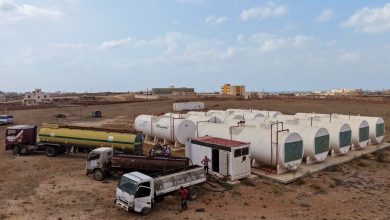A convoy of 82 fuel tankers from Niger arrived in Bamako, Mali, on November 22nd, providing crucial support to alleviate persistent fuel supply pressures in the Malian market. The delivery underscores Niger’s commitment to regional cooperation amid ongoing energy challenges.
The shipment navigated the Niamey-Bamako corridor, a route considered sensitive due to security concerns, before being officially handed over to Mali’s Minister of Industry and Trade during a government reception.
Authorities stated that the initiative was directed by Niger’s President Abdourahamane Tchiani, aiming to bolster Mali, which relies heavily on imports to meet its energy demands. Malian officials express hope that this fuel injection will temporarily stabilize the domestic market and mitigate the ongoing fuel crisis.
Mali’s consumption patterns highlight its dependence on external sources. International data indicates Mali’s daily fuel consumption is approximately 40,000 barrels, equivalent to 6.3 to 6.5 million liters. This high demand is driven by reliance on road transport, increasing electricity needs, and the absence of domestic refining infrastructure, making the country vulnerable to supply chain disruptions.
This delivery also spotlights Niger’s growing role as a regional energy provider following its emergence as an oil-exporting nation, facilitated by the Niger-Benin pipeline. Conversely, Mali seeks to diversify its energy sources and ensure stable supplies. Officials have affirmed that this shipment will provide temporary relief to the internal market.
This act of solidarity occurs within the context of strengthened cooperation between Niger, Mali, and Burkina Faso under the Alliance of Sahel States. This alliance aims to foster increased coordination in security, economic affairs, and energy sectors. The initiative aligns with the three nations’ efforts to establish supply networks less susceptible to external pressures, while discussions continue on securing trade routes and developing energy sector partnerships.




